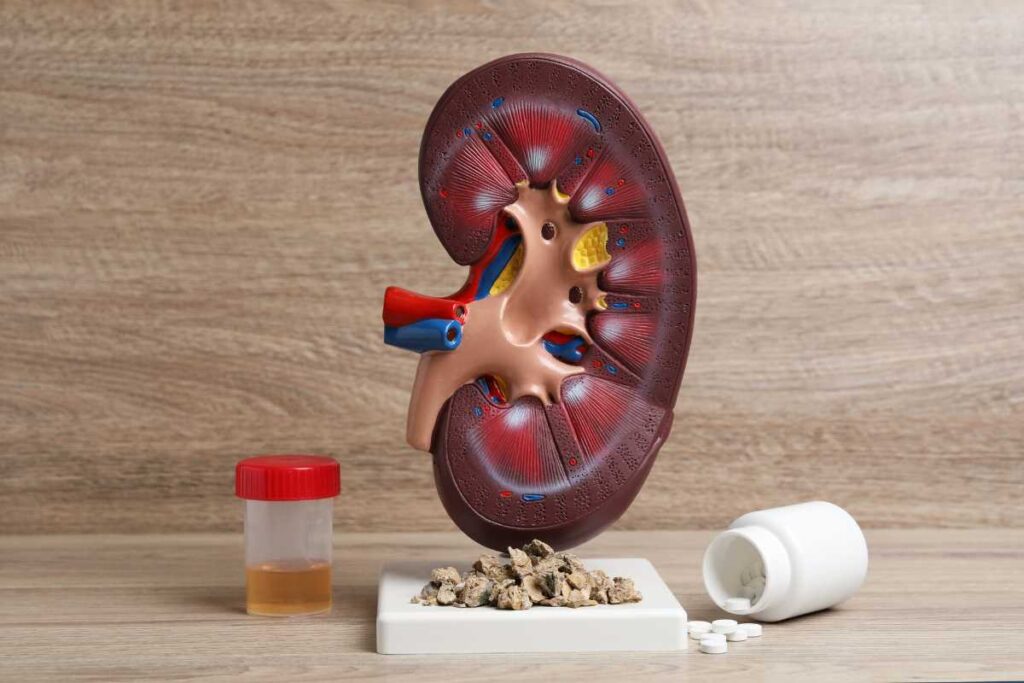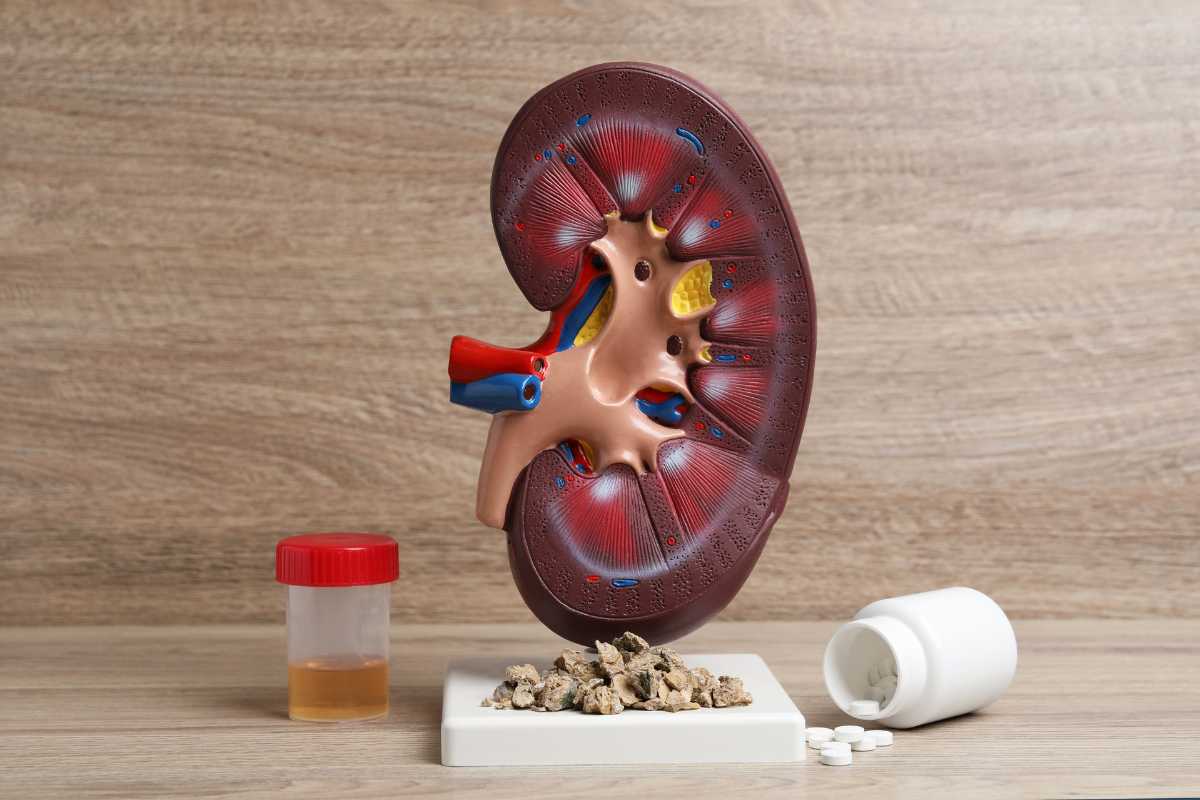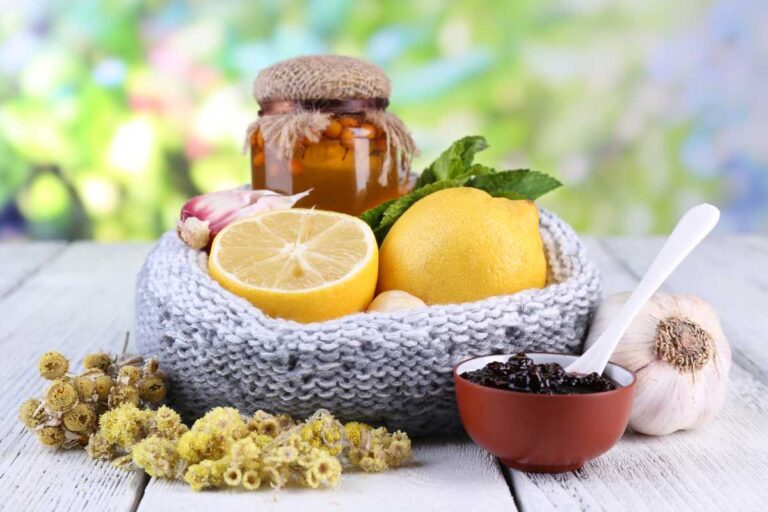Prophetic Medicine for Kidney Stones: Natural Remedies
Prophetic Medicine for Kidney Stones: Natural Remedies

Prophetic medicine, rooted in ancient traditions, offers alternative remedies for kidney stones. With a rich historical significance in treating various ailments, it is worth exploring the potential benefits of incorporating prophetic medicine into modern healthcare practices.
Research indicates that certain preparations and methods mentioned in prophetic medicine texts have shown promise in alleviating kidney stone symptoms.
Understanding the prevalence of kidney stones and their impact on individuals’ lives underscores the relevance and importance of studying prophetic medicine for kidney stone treatment.
By delving into this chapter of medical history, we can gain valuable insights into natural approaches that may complement conventional treatments. The aim is to provide holistic care options that address not only the physical aspects but also the overall well-being of patients.
| Causes of Kidney Stones | Explanation |
|---|---|
| Dehydration | When there is not enough water in the body, urine becomes concentrated, leading to stone formation |
| Dietary Factors | Consuming excessive amounts of certain substances, such as salt, oxalate, or calcium |
| Family History | A family history of kidney stones increases the risk of developing them |
| Medical Conditions | Certain medical conditions, such as urinary tract infections or metabolic disorders |
| Medications | Some medications can increase the risk of kidney stone formation |
| Obesity | Being overweight or obese can increase the risk of developing kidney stones |
| Previous Kidney Stones | Having had kidney stones in the past increases the likelihood of future stone formation |
| Sedentary Lifestyle | Lack of physical activity can contribute to the formation of kidney stones |
| Age | The risk of kidney stones increases with age |
| Gender | Men are more likely to develop kidney stones than women |
“Explore our latest articles on Prophetic Medicine to discover simple, natural remedies that can improve your health. Check them out now and start feeling better!“
Medicinal Plants for Kidney Stone Treatment
Medicinal plants have been used for centuries as a natural remedy for various ailments, including kidney stones. These plants offer a diverse range of treatments that can help manage the symptoms and even facilitate the elimination of kidney stones from the body.
One of the advantages of using medicinal plants is their availability. You can easily find them in your local surroundings or consult with a herbalist who specializes in traditional medicine. They are often more accessible and affordable compared to conventional medications, making them an attractive option for many people.
Harnessing the healing properties of medicinal plants involves utilizing different parts of the plant, such as leaves, roots, stems, or even the whole plant itself. Each part contains specific compounds that possess therapeutic benefits for treating kidney stones.
The use of medicinal plants for kidney stone treatment has its roots in ancient practices like Prophetic Medicine. This approach emphasizes using natural remedies derived from botanical sources to promote overall well-being. Many traditional medical texts like “De Materia Medica” describe various medicinal plants and their applications in treating different conditions, including kidney stones.
Scientific research supports the effectiveness of certain medicinal plants in combating kidney stones. For example:
- Prunus Cerasus (Sour Cherry): Studies have shown that consuming sour cherry juice can help reduce inflammation and alleviate pain associated with kidney stones.
- Phyllanthus Niruri (Chanca Piedra): This herb has been traditionally used to dissolve kidney stones and prevent their formation by reducing calcium oxalate crystal growth.
- Urtica Dioica (Stinging Nettle): Nettle leaf tea may help increase urine production and promote the expulsion of small kidney stones.
- Punica Granatum (Pomegranate): Pomegranate juice possesses antioxidant properties that can inhibit crystal formation and reduce oxidative stress related to kidney stone development.
It’s important to note that while medicinal plants offer potential benefits, it’s crucial to consult with a healthcare professional or an experienced herbalist before incorporating them into your treatment plan. They can provide guidance on the appropriate dosage and potential interactions with any existing medications.
Black Seed (Nigella sativa L.) and its Effectiveness in Treating Kidney Stones
Black seed, also known as Nigella sativa L., has shown promising results in the treatment of kidney stones. This small, black seed is packed with active compounds that contribute to its efficacy against kidney stones.
Understanding the active compounds present in black seed is crucial to comprehending how it can help dissolve and prevent the formation of kidney stones. One such compound is thymoquinone, which possesses potent antioxidant and anti-inflammatory properties.
These properties aid in reducing inflammation and oxidative stress, which are often associated with kidney stone formation.
Moreover, black seed oil has been found to possess diuretic properties. This means that it can increase urine production and promote the elimination of waste products from the body. By increasing urine output, black seed oil may help flush out small kidney stones or prevent their growth by preventing crystallization.
Several studies have supported the use of black seed as an effective remedy for kidney stone treatment. In a study conducted on rats with induced calcium oxalate kidney stones, researchers found that black seed extract significantly reduced stone formation and decreased urinary calcium excretion.
Another study on human subjects demonstrated that taking black seed oil capsules for three months resulted in a significant decrease in urinary calcium levels.
In addition to its potential to dissolve existing kidney stones, black seed may also prevent their recurrence. A study published in Urology Journal investigated the effects of Nigella sativa oil on patients who had undergone surgical removal of renal calculi (kidney stones).
The results showed that those who received Nigella sativa oil experienced a lower rate of recurrent stone formation compared to those who did not receive the oil.
It’s important to note that while black seed shows promise as a natural remedy for treating kidney stones, it should not replace medical advice or prescribed treatments. Consulting with a healthcare professional before incorporating black seed into your treatment plan is essential.
To summarize, black seed (Nigella sativa L.) has demonstrated effectiveness in treating kidney stones. Its active compounds, such as thymoquinone, possess anti-inflammatory and antioxidant properties that aid in reducing inflammation and oxidative stress associated with kidney stone formation.
Black seed oil’s diuretic properties may help flush out small stones and prevent their growth. Several studies have supported the use of black seed as a remedy for kidney stone treatment, showing its potential to dissolve existing stones and prevent recurrence.
Role of Muslims in the Utilization of Prophetic Medicine for Kidney Stones
Muslims have a long-standing tradition of embracing and utilizing prophetic medicine, including its application to treat kidney stones. This cultural significance and widespread adoption can be observed among Muslim communities worldwide.
Islamic teachings encourage followers to explore natural remedies like prophetic medicine for various health conditions, including kidney stones. Muslim scholars and practitioners play a vital role in preserving and promoting knowledge about prophetic medicine.
Embracing Prophetic Medicine
Muslims have a deep-rooted connection with the teachings of Prophet Muhammad (pbuh), who emphasized the importance of holistic healing methods. Prophetic medicine refers to the practices and remedies mentioned or used by the Prophet Muhammad (pbuh) himself. It encompasses various herbs, foods, and lifestyle practices that are believed to promote overall well-being.
Cultural Significance
Prophetic medicine holds immense cultural significance within Muslim communities. It is not only seen as a means of physical healing but also as a way to connect with their faith and traditions. Many Muslims view the utilization of prophetic medicine as an act of worship, following in the footsteps of their beloved Prophet Muhammad (pbuh). This cultural attachment has led to the widespread adoption and continued use of these remedies across generations.
Islamic Teachings on Natural Remedies
Islamic teachings encourage Muslims to seek natural remedies for ailments whenever possible. The Quran mentions several plants with medicinal properties, emphasizing their benefits for human health.
This encouragement aligns with modern beliefs in holistic approaches to healthcare. By exploring natural remedies like prophetic medicine, Muslims can maintain good health while adhering to their religious values.
Preserving Knowledge
Muslim scholars and practitioners have played an integral role in preserving and promoting knowledge about prophetic medicine throughout history. They have meticulously documented herbal remedies, dietary recommendations, and lifestyle practices mentioned by Prophet Muhammad (pbuh).
These efforts ensure that the wisdom of prophetic medicine is passed down from generation to generation, allowing Muslims to continue benefiting from these time-tested remedies.
Contribution to Healthcare
The utilization of prophetic medicine for kidney stones and other health conditions showcases the contribution of Muslims to the field of healthcare. By embracing natural remedies, Muslims have expanded their options beyond conventional treatments. This holistic approach not only addresses physical symptoms but also promotes overall well-being and spiritual connection.
Understanding Symptoms, Causes, and Risk Factors of Kidney Stones
Symptoms
Symptoms such as severe pain, blood in urine, and frequent urination indicate the possible presence of kidney stones. When a person experiences intense pain in their back or side that radiates to the lower abdomen and groin, it could be a sign of renal stones.
The presence of blood in urine can be an alarming symptom that requires immediate medical attention. Frequent urination or feeling a constant urge to urinate are also common symptoms associated with kidney stones.
Causes
Kidney stone formation can be caused by various factors that contribute to the development of urinary stones. Dehydration plays a significant role as it concentrates urine and allows minerals and salts to crystallize and form stones in the kidneys.
A high-sodium diet can lead to increased calcium excretion through urine, promoting stone formation. Other causes include certain medical conditions like urinary tract infections (UTIs), which create an environment conducive for stone growth.
Risk Factors
Identifying risk factors is crucial in understanding who is more likely to develop kidney stones. Family history plays a role, as individuals with relatives who have had kidney stones are at higher risk themselves.
Obesity is another risk factor due to its association with metabolic disorders that increase the likelihood of stone formation. Certain dietary habits such as consuming excessive amounts of animal protein or oxalate-rich foods like spinach and chocolate can also contribute to stone development.
Importance of Early Detection and Timely Treatment
Raising awareness about early detection and timely treatment for kidney stones is vital for preventing complications and managing symptoms effectively.
Prompt diagnosis allows healthcare professionals to determine the size, type, and location of the stone accurately, helping them devise appropriate treatment plans tailored to individual cases. Early intervention not only reduces pain but also minimizes the risk of infection or further damage to the kidneys.
It’s essential for individuals experiencing symptoms associated with kidney stones to seek medical attention promptly. Delaying diagnosis and treatment can lead to prolonged discomfort and potential complications. By understanding the symptoms, causes, and risk factors of kidney stones, individuals can take proactive measures to prevent their formation or manage existing stones effectively.
Methodology: Gathering Ethnomedicinal Data on Kidney Stone Treatment
To understand the traditional remedies for kidney stones, researchers have employed various research methods to collect ethnomedicinal data. These methods are crucial in documenting the knowledge surrounding prophetic medicine for kidney stones and uncovering valuable insights from local communities.
Exploring Research Methods
Ethnobotanical surveys have played a significant role in gathering information about ethnomedicinal practices for kidney stone treatment. These surveys involve interviewing individuals within local communities who possess traditional knowledge about herbal remedies. By engaging with these experts, researchers gain access to centuries-old wisdom that has been passed down through generations.
Significance of Ethnobotanical Surveys
Ethnobotanical surveys provide a comprehensive understanding of the preparation methods and usage of medicinal plants in treating kidney stones.
They document not only the plants used but also the specific decoction or formulation techniques utilized by different cultures. This information helps scientists analyze the effectiveness of these remedies and explore potential avenues for modern medicine.
Collaboration with Local Communities
Collaboration with local communities is essential when collecting accurate and comprehensive data on traditional remedies.
Building trust and establishing relationships with community members allows researchers to delve deeper into their cultural context and beliefs surrounding prophetic medicine for kidney stones. This collaboration ensures that the gathered information is culturally sensitive, respectful, and representative of the community’s practices.
Qualitative Interviews and Surveys
Qualitative interviews play a vital role in understanding how traditional remedies are perceived by individuals suffering from kidney stones.
By conducting interviews, researchers can gather firsthand accounts of patients’ experiences, including their symptoms, treatment outcomes, and any side effects they may have encountered. This qualitative data offers valuable insights into the efficacy of prophetic medicine for kidney stones.
Surveys are another effective method used to collect data on ethnomedicinal practices. Questionnaires tailored specifically to capture information related to kidney stone treatment can be distributed among individuals who have used traditional remedies.
These surveys provide a broader perspective on the prevalence and effectiveness of these treatments within the community.
Harnessing the Power of Idhkhir Grass for Effective Kidney Stone Treatment
Idhkhir grass has been traditionally used in prophetic medicine to treat kidney stones.
Idhkhir grass, also known as Tribulus terrestris or Al-Kulā in Arabic, has a long history of being used in traditional medicine to treat kidney stones. This ancient knowledge can be traced back to the teachings of renowned Persian physician Al-Razi (Rhazes), who hailed from the city of Shiraz. In his famous medical encyclopedia called “Al-Tajārib,” Al-Razi documented the healing properties of various herbs, including Idhkhir grass, for treating kidney stone symptoms. The use of Idhkhir grass in managing kidney stones has been passed down through generations and is still practiced today.
Understanding how Idhkhir grass works to break down and eliminate kidney stones from the body.
Idhkhir grass contains active compounds that have diuretic and lithotriptic properties, meaning they promote increased urine production and help break down kidney stones. When consumed or applied as a poultice, these compounds work by increasing urine flow and exerting a gentle pressure on the kidneys, facilitating the expulsion of small stones.
Idhkhir grass is believed to inhibit crystal formation and growth within the urinary tract, preventing the development of new stones. Its natural anti-inflammatory properties may also help reduce pain and inflammation associated with kidney stone episodes.
The potential benefits of incorporating Idhkhir grass into modern treatment approaches for kidney stones.
Incorporating Idhkhir grass into modern treatment approaches for kidney stones holds several potential benefits. Firstly, it offers a natural alternative to conventional medications that often come with side effects. Secondly, it may complement existing treatments by helping prevent stone recurrence and manage symptoms such as pain and discomfort.
Moreover, using traditional remedies like Idhkhir grass can provide individuals with a sense of empowerment and autonomy in managing their health. It is important to note that while Idhkhir grass can be a valuable addition to kidney stone treatment, it should always be used under the guidance of a healthcare professional.
Highlighting scientific studies that support the effectiveness of Idhkhir grass in managing kidney stone symptoms.
Scientific research has begun shedding light on the efficacy of Idhkhir grass in managing kidney stones. A study published in the Journal of Ethnopharmacology examined the effects of Idhkhir grass extract on rats with induced kidney stones.
The results demonstrated that the extract significantly reduced stone formation and promoted their elimination from the body. Another study conducted at Shahrekord University of Medical Sciences in Iran found that administering Idhkhir grass powder mixed with warm water helped alleviate pain and improve urinary parameters in patients with kidney stones.
Promising Outlook for Prophetic Medicine in Managing Kidney Stones
In exploring the realm of prophetic medicine for kidney stones, several sections have shed light on its potential efficacy. The utilization of medicinal plants, such as black seed (Nigella sativa L.), and the harnessing of idhkhir grass have shown promising results in treating this condition. Muslims, in particular, play a significant role in embracing and benefiting from prophetic medicine for kidney stone treatment.
Understanding the symptoms, causes, and risk factors associated with kidney stones is crucial in comprehending the significance of prophetic medicine in managing this condition. By gathering ethnomedicinal data through appropriate methodologies, researchers are continuously discovering new ways to leverage these ancient remedies effectively.
As we delve deeper into the world of prophetic medicine for kidney stones, it becomes evident that there is much to explore and gain from these traditional remedies. However, it is important to remember that while these treatments show promise, consulting with healthcare professionals remains essential for accurate diagnosis and personalized guidance.
FAQs
How long does it take for prophetic medicine to treat kidney stones?
The duration of treatment can vary depending on various factors such as the size and location of the kidney stone, overall health conditions, and individual response to treatment. It is best to consult with a healthcare professional who can provide an accurate assessment based on your specific circumstances.
Can I solely rely on prophetic medicine for treating kidney stones?
While prophetic medicine offers potential benefits in managing kidney stones, it should not replace medical advice or prescribed treatments from healthcare professionals. It is advisable to incorporate both traditional remedies and modern medical interventions under proper supervision.
Are there any side effects associated with using prophetic medicine for kidney stone treatment?
Prophetic medicines derived from natural sources generally have fewer side effects compared to conventional medications. However, individual reactions may vary. It is recommended to consult with a healthcare professional before starting any new treatment to ensure its suitability for your condition.
Can prophetic medicine prevent the recurrence of kidney stones?
Prophetic medicine may help in reducing the risk of kidney stone recurrence by promoting overall kidney health and addressing underlying factors that contribute to stone formation. However, lifestyle modifications and dietary changes are also important in preventing future occurrences.
Is prophetic medicine scientifically proven to be effective for kidney stones?
While some studies have shown positive outcomes regarding the use of prophetic medicine for kidney stones, further research is needed to establish its efficacy conclusively. It is essential to approach these remedies with an open mind while considering scientific evidence and consulting with healthcare professionals for personalized guidance.







